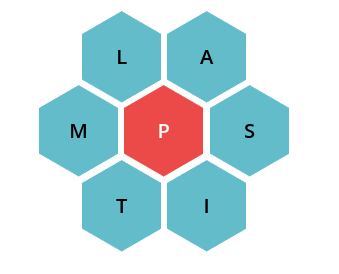
The Role of Appeal Lawyers in Florida’s Legal System
In the intricate world of law, not all cases end with the trial court’s decision. The legal system allows for a second chance through the appellate process, where higher courts review trial court decisions for errors in law or procedure. In Florida, appeal lawyers play a critical role in this process, advocating for clients who seek to challenge or defend trial court rulings. This article will explore the significant responsibilities and contributions of appeal lawyers within the Florida legal system, and why their expertise is vital in ensuring justice is served.
Understanding the Appellate Process in Florida
An appeal is not a new trial; rather, it is a review of a lower court’s decision. It focuses on whether legal mistakes were made that affected the trial’s outcome. In Florida, appeals can be filed in both civil and criminal cases, and they are typically heard by District Courts of Appeal or the Florida Supreme Court in exceptional cases.
Appeal lawyers in florida are specialists who understand how appellate courts function. Their role is distinct from trial lawyers because they do not present new evidence or call witnesses. Instead, they focus on legal arguments, meticulously reviewing trial records and identifying potential grounds for appeal, such as:
- Incorrect application of the law
- Improper jury instructions
- Procedural errors by the trial judge
1. Appellate Expertise: Analyzing Legal Errors
One of the most critical roles of an appeal lawyer is to identify legal errors made by the trial court. These errors could include misinterpreting a law, admitting improper evidence, or issuing incorrect jury instructions. The appeal lawyer must review the trial transcript, which contains all court proceedings, to pinpoint mistakes that could form the basis for an appeal.
Key Responsibilities in Error Identification:
- Detailed review of trial records: Appeal lawyers must carefully analyze all aspects of the trial proceedings to detect any errors.
- Legal research: They need to perform in-depth research to find relevant case law and precedents that support the argument for correcting these errors.
- Grounds for appeal: Not every mistake at trial warrants an appeal. The error must have impacted the trial’s outcome, which the lawyer must demonstrate convincingly.
2. Preparing and Filing the Appellate Brief
Once legal errors are identified, the next critical step for the appeal lawyer is preparing the appellate brief. This is a formal, written document submitted to the appellate court, outlining the legal arguments for why the trial court’s decision should be reversed or modified.
The brief is perhaps the most crucial element of an appeal. It must be well-researched, clearly written, and adhere to the strict procedural rules of Florida’s appellate courts. Experienced appeal lawyers excel in creating persuasive briefs that summarize the facts, point out legal errors, and cite relevant case law.
Components of an Effective Appellate Brief:
- Statement of the case: An overview of the facts and trial court’s decision.
- Legal arguments: Detailed explanations of the legal errors and why they merit a reversal or modification of the lower court’s ruling.
- Citations: References to relevant statutes and prior court rulings that support the argument.
- Conclusion: A clear statement of what outcome is being sought from the appellate court.
3. Oral Arguments Before the Appellate Court
In some cases, the appellate court may schedule oral arguments, where both sides present their legal arguments in person. Appeal lawyers must be prepared to answer questions from a panel of judges and clarify any points from the written briefs. Oral arguments provide an opportunity to reinforce key aspects of the appeal and directly address any concerns the judges may have.
Why Oral Arguments Are Important:
- Clarification of complex legal issues: Oral arguments allow the lawyer to explain nuanced legal points that may be unclear from the briefs.
- Interaction with the judges: This is the only opportunity for direct interaction with the judges, making it critical for the lawyer to present confidently and convincingly.
- Reinforcement of key arguments: Oral arguments give the lawyer a chance to emphasize the most important legal points in their case.
4. Protecting Clients’ Rights in Florida’s Appellate System
Appeal lawyers are essential advocates for clients seeking to protect their legal rights in Florida’s appellate system. Whether defending a favorable lower court decision or challenging an unfavorable one, their role is crucial in ensuring that justice is served.
For appellants, the lawyer’s role is to demonstrate that the trial court made serious errors that require the case to be overturned or retried. For appellees, the lawyer’s responsibility is to defend the trial court’s ruling, showing that no significant legal errors occurred and that the judgment should stand.
Roles of Appeal Lawyers for Both Appellants and Appellees:
- For appellants: Identifying trial court errors, building persuasive arguments for reversal, and presenting these arguments effectively in briefs and oral arguments.
- For appellees: Countering the appellant’s claims by defending the trial court’s decision, demonstrating that any alleged errors were insignificant or did not affect the outcome.
5. Navigating the Complexities of Florida Appellate Rules
The Florida appellate system has specific procedural rules and deadlines that must be followed precisely. Failure to comply with these rules can result in the dismissal of an appeal. Appeal lawyers are well-versed in these requirements, ensuring that all filings, briefs, and notices are submitted in accordance with Florida’s strict appellate deadlines.
Importance of Adhering to Appellate Rules:
- Timely filing of notices: In Florida, appeals must be initiated within 30 days of the final judgment. Missing this deadline can prevent the appeal from moving forward.
- Proper formatting of briefs: Florida appellate courts have strict guidelines on how briefs should be formatted, including word limits, spacing, and content structure.
- Record preparation: Appeal lawyers must ensure that the record on appeal, including all transcripts and evidence from the trial, is complete and properly submitted to the appellate court.
6. Ensuring Access to Justice
Appeal lawyers play an indispensable role in ensuring that individuals have access to justice by providing a second level of judicial review. Their work ensures that errors made at the trial court level do not result in unfair outcomes. They also help maintain the integrity of Florida’s legal system by ensuring that lower courts adhere to the law and established legal precedents.
Appeal Lawyers’ Impact on the Legal System:
- Upholding legal standards: By identifying and challenging errors, appeal lawyers help enforce legal standards and contribute to the evolution of the law.
- Ensuring fairness: Their work ensures that litigants receive a fair hearing, even if mistakes were made at the trial court level.
- Contributing to case law: Successful appeals often result in the establishment of new legal precedents, which can shape future cases and decisions in Florida.
Conclusion
The role of appeal lawyers in Florida’s legal system is crucial to ensuring that justice is done. From identifying trial court errors to crafting compelling appellate briefs and presenting oral arguments, these lawyers bring specialized skills and knowledge to the appellate process. Their work not only serves their clients but also contributes to the development and enforcement of legal standards across the state.
Whether you are seeking to overturn an unfavorable judgment or defend a favorable ruling, an experienced Florida appeal lawyer can guide you through the appellate process, providing the expertise and advocacy needed to achieve the best possible outcome.

















